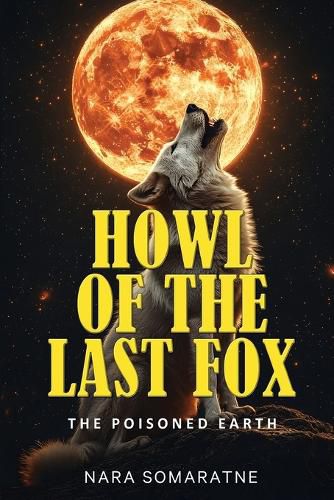Readings Newsletter
Become a Readings Member to make your shopping experience even easier.
Sign in or sign up for free!
You’re not far away from qualifying for FREE standard shipping within Australia
You’ve qualified for FREE standard shipping within Australia
The cart is loading…






This title is printed to order. This book may have been self-published. If so, we cannot guarantee the quality of the content. In the main most books will have gone through the editing process however some may not. We therefore suggest that you be aware of this before ordering this book. If in doubt check either the author or publisher’s details as we are unable to accept any returns unless they are faulty. Please contact us if you have any questions.
In this fictional account based on the childhood memories of the author, the reader is taken on a captivating journey through the history of a poverty-stricken rural community in Sri Lanka and the villagers who lived there.
The author spent his early years helping in the rice paddies when he wasn't at school, and clearly recalls the diverse natural systems that existed there: the freshwater crabs, water birds, croaking frogs, barb fishes and insects.
At night, he remembers hearing the howling of foxes and elephants trumpeting in the forest.
As time went on, the forests were cut down for chena (crop) cultivation, and the government introduced subsidised fertilizers and pesticides, ostensibly to improve rice and vegetable production, but also to attract the rural vote. The land and waterways were contaminated with heavy metals, biodiversity was systematically broken down and the wildlife vanished for good - even the earthworms disappeared. Thirty years later, the people began to suffer from chronic kidney damage on a mass scale, and they began to understand the damage that had been done - the heavy metals had not only poisoned the waterways and the land, but the people themselves. Subsequent generations of farmers also began to understand the importance of ecosystem conservation and 'circular farming systems', as well as the need to elect educated, environmentally concerned people to represent them in the government.
This is story of someone who has witnessed environmental and human destruction and has lived to tell the tale.
It's also the sharing of one old man's wisdom.
$9.00 standard shipping within Australia
FREE standard shipping within Australia for orders over $100.00
Express & International shipping calculated at checkout
This title is printed to order. This book may have been self-published. If so, we cannot guarantee the quality of the content. In the main most books will have gone through the editing process however some may not. We therefore suggest that you be aware of this before ordering this book. If in doubt check either the author or publisher’s details as we are unable to accept any returns unless they are faulty. Please contact us if you have any questions.
In this fictional account based on the childhood memories of the author, the reader is taken on a captivating journey through the history of a poverty-stricken rural community in Sri Lanka and the villagers who lived there.
The author spent his early years helping in the rice paddies when he wasn't at school, and clearly recalls the diverse natural systems that existed there: the freshwater crabs, water birds, croaking frogs, barb fishes and insects.
At night, he remembers hearing the howling of foxes and elephants trumpeting in the forest.
As time went on, the forests were cut down for chena (crop) cultivation, and the government introduced subsidised fertilizers and pesticides, ostensibly to improve rice and vegetable production, but also to attract the rural vote. The land and waterways were contaminated with heavy metals, biodiversity was systematically broken down and the wildlife vanished for good - even the earthworms disappeared. Thirty years later, the people began to suffer from chronic kidney damage on a mass scale, and they began to understand the damage that had been done - the heavy metals had not only poisoned the waterways and the land, but the people themselves. Subsequent generations of farmers also began to understand the importance of ecosystem conservation and 'circular farming systems', as well as the need to elect educated, environmentally concerned people to represent them in the government.
This is story of someone who has witnessed environmental and human destruction and has lived to tell the tale.
It's also the sharing of one old man's wisdom.